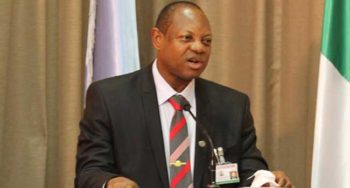
By Omotilewa Quadri
The Coordinator of the Presidential Amnesty Programme (PAP), Brig.-Gen. Paul Boroh (rtd) says that the PAP will continue its training of ex-agitators on seafaring.
Boroh, who also doubles as the Special Adviser to the President on Niger Delta Affairs, made this known in an interview with newsmen on Sunday in Abuja.
He explained that the Amnesty Office was aware of the economic importance of the maritime transport industry to the Niger Delta region and the need to train personnel.
Boroh disclosed that a batch of trained beneficiaries from the World Maritime Institute in Sweden had successfully graduated and were back to Nigeria as seafarers.
He said that the maritime industry in Nigeria was crucial to the economic growth of the country.
The amnesty coordinator said that the existence of the shipping industry was vital to the global economy as it was one of the most important means of transportation due to its industrial and economic viability.
“Seaports are essential elements of the maritime transport supply chain. Not only do they entail a collection of pier and quay, but they are the suppliers and clients of a lot of services.
“They invest and create a lot of jobs, and are also often catalysts for growth and development, which implies that the sea transport system creates a lot of opportunities,” he said.
Boroh noted that for centuries people from around the world have been sending goods through the seaways, ranging from clothes to shoes, food, electronics and every other manufactured item.
He added that many import and export trade solely depended on the maritime transport system for sustainability.
According to him, the World Maritime University (WMU) in Sweden, is founded by the International Maritime Organisation (IMO), a specialised agency of the United Nations.
“WMU has an established reputation as a global centre for advanced education and research in the maritime field.
“It is offering high-quality professional education, which has provided the Amnesty beneficiaries with unique insight into the maritime sector,” he said.
The Presidential aide described the work of brave seafarers as one of the toughest jobs in the world.
He stressed the importance of the seafarers to the nation, saying that they operated the massive ships on the sea through the roughest waters and risky areas.
According to the coordinator, seafarers run the global economy, 90 percent of the world’s food, fuel, raw materials and manufactured goods are delivered by sea.
He added that nearly everything sold worldwide were transported through ships, which needed skilled seafarers to operate, maintain and repair.
Boroh said the President Mohammadu Buhari Administration was so passionate about the Niger Delta region that he had approved an immediate release of N1billion to the Maritime University at Okerenkoko, to support infrastructure works and staff recruitment.
He said the University would equal the standard of WUM as it would also produce Seafarers, Maritime Engineers and Technology, Maritime Environmental Managers.
One of the major issues tabled before the Federal Government by the Niger Delta leaders was the take-off of the Maritime University.
Copyright Ships & Ports Ltd. Permission to use quotations from this article is granted subject to appropriate credit given to www.shipsandports.com.ng as the source.
